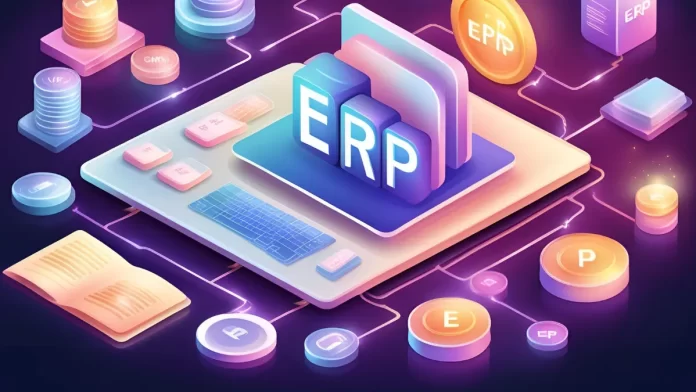Implementing an ERP system has become essential for businesses aiming to optimize their operations. Without an ERP system, companies may struggle to align activities across departments, leading to communication breakdowns and data discrepancies. These challenges can disrupt workflows, delay decision-making, and ultimately affect a company’s profitability.
ERP systems improve operational efficiency and support decision-making by unifying key processes such as finance, HR, manufacturing, and supply chain management into one platform. This integration ensures all departments work with consistent, accurate data, enhancing coordination and minimizing errors.
In this article, we will examine the different types of ERP systems, their classifications, deployment models for selecting the right system to meet a business’s specific needs.
Table of Content
Content Lists
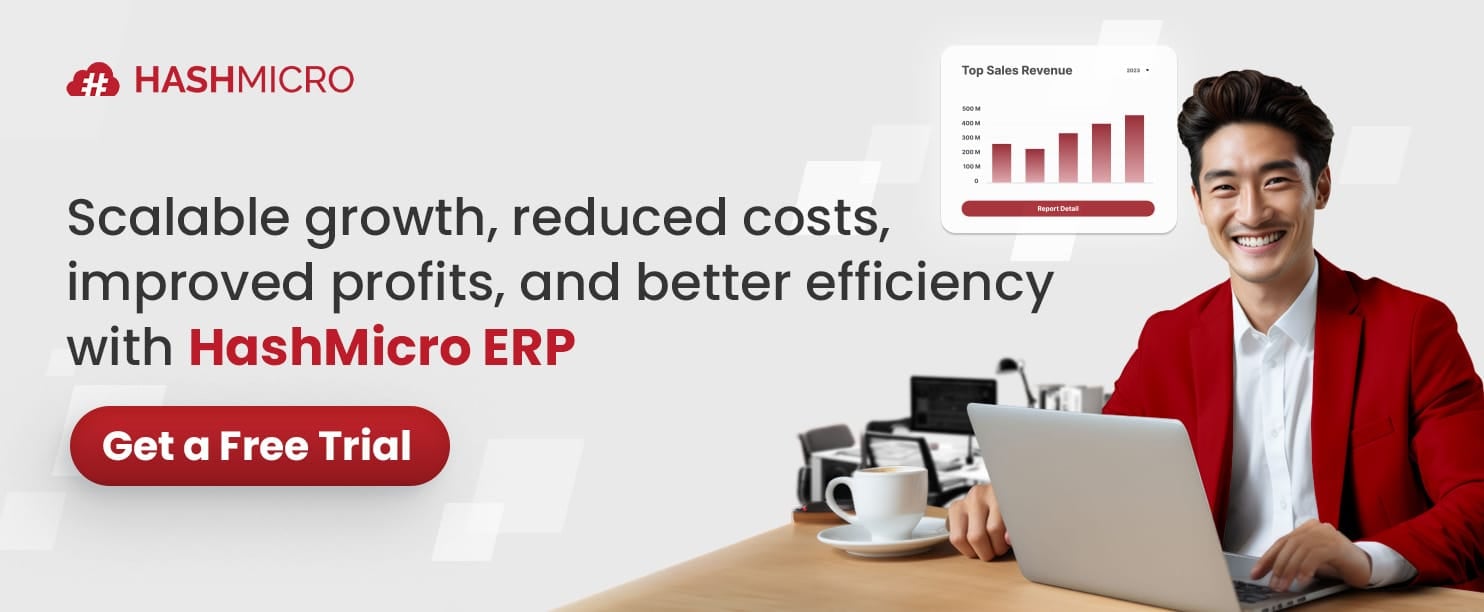
Key Takeaways
|
What is an ERP System?
An ERP (Enterprise Resource Planning) system is a comprehensive business process management software designed to streamline and integrate various operations within an organization. It provides a centralized platform that connects core functions such as finance, human resources, manufacturing, inventory management, and supply chain operations.
By enabling seamless data flow between departments, an ERP system eliminates silos, improves efficiency, and supports informed decision-making. Organizations of all sizes rely on ERP systems to enhance productivity, reduce operational costs, and maintain a competitive edge in today’s fast-paced business environment.
Benefits of Using ERP for the Company
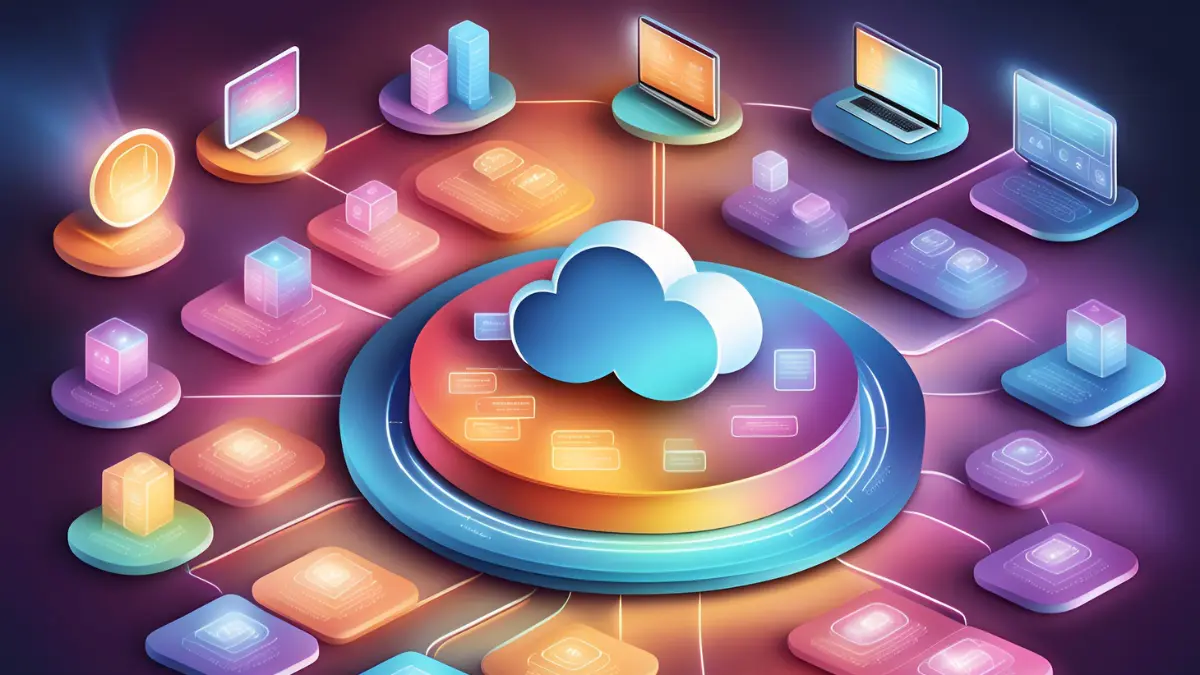
Implementing an ERP system offers numerous advantages that can significantly transform how a business operates. By streamlining processes and centralizing information, ERP systems empower companies to achieve greater efficiency, accuracy, and adaptability. Below are some of the key benefits that businesses can gain from adopting an ERP system:
- Improved operational efficiency: ERP systems automate repetitive tasks and streamline workflows, ensuring that business processes run seamlessly. This efficiency reduces manual effort and minimizes operational bottlenecks, allowing companies to focus on strategic goals.
- Enhanced data accuracy and real time insights: With centralized data management, ERP systems provide consistent, accurate, and real-time information. This ensures that decision-makers have reliable insights to drive informed strategies and minimize errors.
- Better financial management: ERP systems offer comprehensive tools for tracking expenses, managing budgets, and forecasting revenue. This capability ensures businesses maintain financial health and make sound investments based on accurate data.
- Optimized inventory and supply chain management: ERP systems integrate inventory and supply chain processes, helping companies maintain optimal stock levels, prevent shortages, and improve overall logistics. This leads to enhanced customer satisfaction and cost savings.
- Cost efficiency and total cost of ownership (TCO): Implementing an ERP system can optimize operational costs and reduce unnecessary expenses over time. By considering the total cost of ownership, businesses can evaluate the long-term value of their ERP investment and ensure that it aligns with their strategic objectives.
Focusing on these key benefits allows businesses to maximize the value of their ERP systems, streamline operations, and maintain a competitive edge in their industry.
Types of ERP Systems
The world of ERP systems is vast and varied, offering solutions designed to meet the specific requirements of businesses of all sizes. In this section, we will delve into three main categories ERP systems classified by tier, deployment model, and business-specific needs.
1. Types of ERP by tier
It is crucial to understand the various types of ERP systems categorized by organizational tiers. This classification enables businesses to identify the appropriate level of system complexity and customization needed based on their size and operational scale:
- Tier 1 ERP: Designed for large multinational corporations, these systems offer extensive features to handle complex global operations. They accommodate multiple languages and currencies and ensure compliance with diverse international regulations.
- Tier 2 ERP: These systems balance robust functionality and flexibility. While less complex than Tier 1, they deliver comprehensive tools for businesses aiming to expand or optimize their operations efficiently.
- Tier 3 ERP: Tailored for companies with simpler operational needs, Tier 3 ERP systems are easier to implement and maintain. They offer essential ERP functionalities at a lower cost, making them ideal for startups and small businesses.
2. Types of ERP by deployment model
Understanding the deployment method of an ERP system is essential, as it greatly influences its performance, scalability, and alignment with a business’s needs. Let’s delve deeper into the various deployment models to help you identify the one that best fits your operational requirements and strategic objectives.
a. Cloud ERP
Cloud ERP or Cloud based Enterprise Resource Planning software is a system managed and hosted by vendors through cloud-based data centers. These providers oversee all aspects, including applications, databases, operating systems, and servers.
They also handle updates, ensuring robust security, antivirus protection, and additional features like disaster recovery.
| Pros | Cons |
|
|
b. On-premises ERP
On-premises ERP systems are installed directly on a company’s computers and servers, providing businesses with full control over their ERP infrastructure. This setup allows organizations to manage, implement, and secure the system according to their specific needs.
Companies often choose on-premises ERP to maintain greater control over their data and to enable system customization tailored to their unique requirements.
| Pros | Cons |
|
|
c. Hybrid ERP
Hybrid ERP is a type of system that blends cloud and on-premises elements. It allows businesses to store some of their ERP applications and data on local servers while transferring others to the cloud.
This approach provides the benefits of cloud scalability and cost savings while ensuring that critical functions remain on-premises for enhanced control and security.
| Pros | Cons |
|
|
3. Types of ERP based on business needs
Every business has its own set of challenges and needs, so it’s important to understand ERP systems in the context of these specific requirements. This knowledge helps companies choose an ERP solution that aligns with their current operations while also catering to their industry-specific demands and future growth goals.
a. Enterprise ERP
Enterprise ERP systems are ERP solutions that can be implemented either in the cloud or on-premises. These systems are highly customizable and connect various business processes, offering a complete set of tools tailored for large-scale organizations.
| Pros | Cons |
|
|
b. SaaS ERP
SaaS ERP or software as a service ERP is a cloud-based solution that connects business processes to the internet. This model enables companies to access ERP software through a subscription rather than owning it outright.
| Pros | Cons |
|
|
c. Custom / In-House ERP
Custom or in-house ERP systems are tailored solutions created specifically to address a company’s unique needs. These systems are developed either by the company’s own IT department or by external developers with specialized expertise.
| Pros | Cons |
|
|
Which Business Functions Can Be Improved with ERP?
Enterprise Resource Planning (ERP) systems streamline key business functions by consolidating them into a single platform, improving efficiency and decision-making. Below are some of the business functions that can be enhanced with an ERP system:
- Accounting: ERP systems streamline financial operations such as managing ledgers, budgeting, and generating financial reports, leading to improved financial oversight.
- Human resources: ERP simplifies HR functions, including payroll processing, benefits administration, and managing employee data, resulting in enhanced accuracy and efficiency.
- Supply chain management: ERP optimizes inventory management, procurement, and logistics, ensuring timely and cost-efficient delivery of products.
- Customer relationship management: ERP incorporates customer management tools that improve customer interactions and satisfaction.
- Manufacturing: ERP supports manufacturing processes through production scheduling, quality control, and maintenance management.
- Project management: ERP provides tools for project planning, resource allocation, and progress tracking, helping managers complete projects on time and within budget.
By streamlining these key functions, ERP systems enable businesses to run more efficiently, cut costs, and improve overall performance, making them indispensable for effective business management. If you’re wondering how to choose the right ERP, it’s important to consider how well the system supports these vital operations.
Indicators That Your Business Could Benefit from an ERP System
To stay competitive in a dynamic market, it’s important to anticipate operational challenges and changes. Identifying when your business could benefit from an ERP system is essential for making informed decisions that drive growth.
Below are key indicators that suggest your business might be ready to adopt an ERP system:
- Data management challenges: When managing data across different departments becomes cumbersome, leading to inconsistencies and inefficiencies, it’s time to consider an ERP system. By integrating business process reengineering with ERP implementation, you can streamline workflows and centralize data management for greater accuracy and accessibility.
- Inefficient workflows: If manual tasks and repetitive processes are slowing down operations, an ERP system can automate these tasks, boosting efficiency and minimizing errors.
- Struggles with growth: If your current system is unable to handle the increasing complexity of operations as your business expands, an ERP system offers the scalability needed to support growth especially for businesses looking to align their expansion strategies with principles under an ESG framework.
- Regulatory compliance issues: For businesses dealing with regulatory requirements, especially across various regions, ERP systems help ensure compliance by aligning operations with legal standards.
- Poor reporting and planning: If generating accurate and timely reports is becoming more difficult, ERP systems provide advanced analytics and real-time data to assist in decision-making.
- Customer service concerns: If operational inefficiencies like order mistakes or inventory problems affect customer satisfaction, an ERP system can integrate customer management tools to enhance service quality.
HashMicro as an All-in-One ERP Solutions
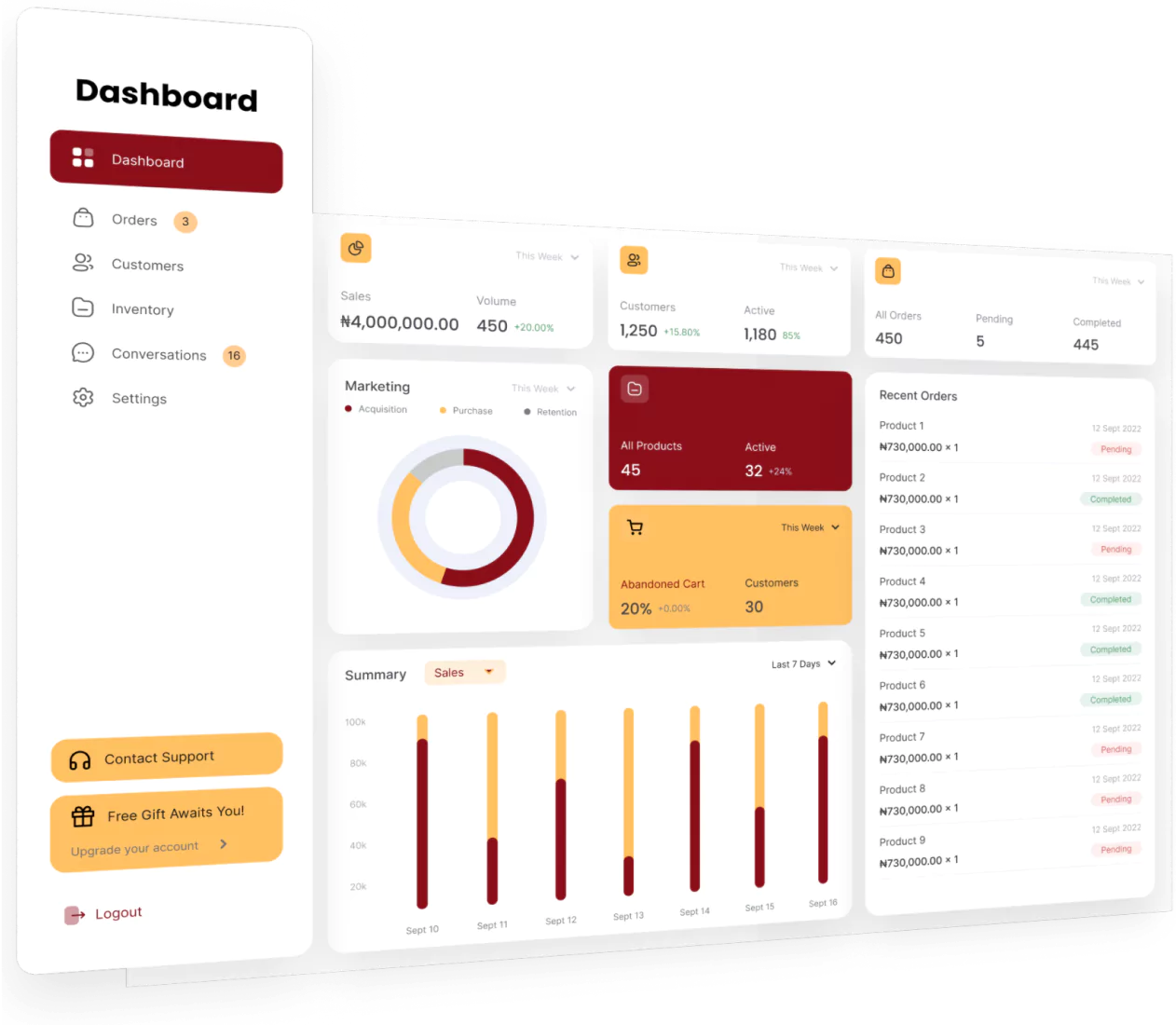
HashMicro ERP Software is a powerful platform that brings together various business functions into one integrated system, making operations smoother across departments. This software enhances visibility, improves data accuracy, and supports real-time decision-making, which is crucial for effective modern business management.
As a leading provider, HashMicro delivers a standardized ERP system that helps businesses comply with relevant regulations. This feature is especially important for companies in sectors where adhering to legal and regulatory standards is essential.
HashMicro’s reliability is evident in its widespread use across various sectors, with many prominent companies trusting the system to optimize their operations, demonstrating its ability to handle complex, large-scale business needs, particularly in ERP software Malaysia.
Let’s explore how HashMicro ERP can enhance your business operations:
- Integrated Business Intelligence (BI): HashMicro ERP comes with a built-in BI tool that enables in-depth data analysis, enhancing decision-making. This feature allows businesses to create visual data reports and real-time analytics, offering key insights at a glance.
- Flexible and customizable: HashMicro ERP is highly adaptable, making it suitable for various industries. It is designed to grow with business needs and offers extensive customization options to tailor the system to specific operational requirements.
- Industry-specific modules: HashMicro ERP offers specialized modules that cater to the unique needs of different industries, ensuring businesses can implement a solution that is perfectly aligned with their sector’s demands.
- Customizable dashboards: HashMicro provides adjustable dashboards that help track key performance indicators (KPIs) and other important metrics. This functionality enables users to organize and display crucial data effectively, supporting better management of daily tasks.
- Mobile accessibility: With HashMicro ERP’s mobile apps, users can access the system remotely, ensuring continuous productivity and connectivity even when on the move.
As one of the best ERP vendors, these features make HashMicro ERP a powerful tool for optimizing business operations. By providing an end-to-end solution that covers all critical business processes, HashMicro leads businesses in optimizing operations and enhancing overall performance.
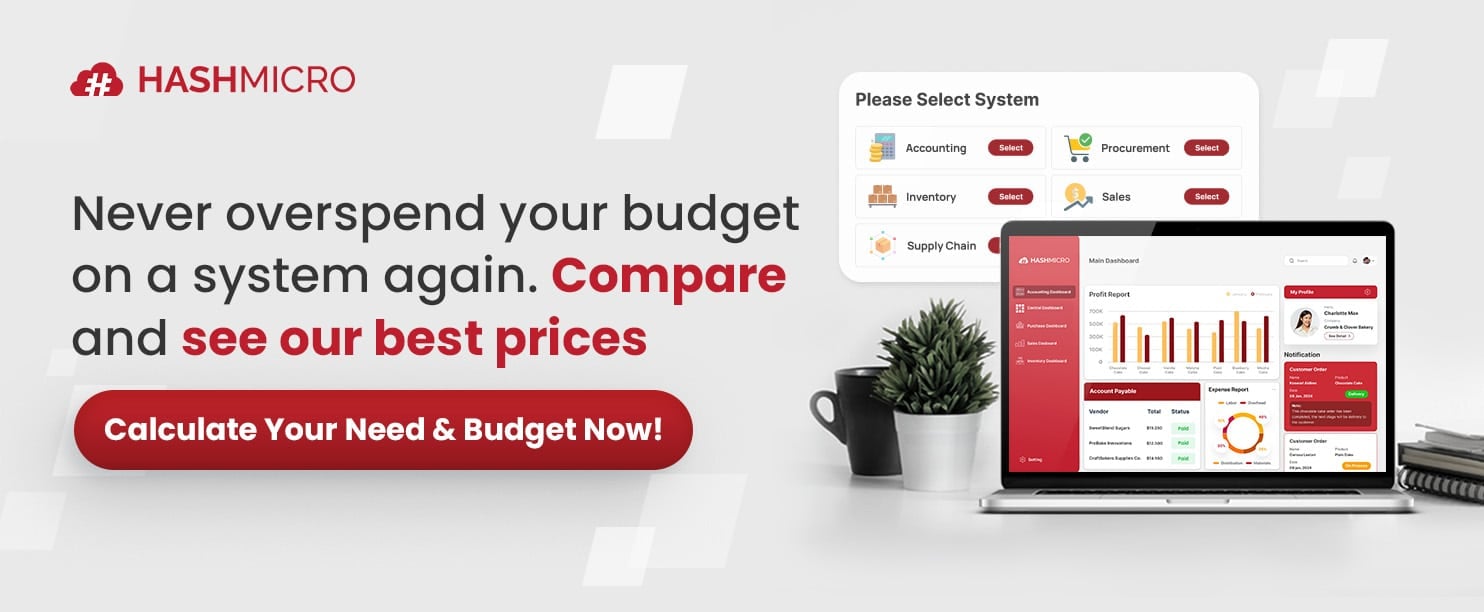
Conclusion
Having a clear understanding of the different types of ERP systems and their unique features is essential for any business looking to improve operational efficiency. The right ERP system not only integrates and optimizes key business functions but also delivers valuable insights that can greatly impact a company’s success.
HashMicro ERP Software stands out as an excellent choice, providing a strong and customizable platform that meets the needs of businesses across various industries. It is designed to simplify complex workflows and enhance productivity.
To see how HashMicro ERP can streamline your business operations, take the free demo today and connect with our experts for personalized consultation.

FAQ Types of ERP
-
What are the 5 components of ERP?
What are the 5 components of ERP? Five common components of ERP systems are accounting and financial management, human resources or human capital management, customer relationship management, business intelligence and supply chain management.
-
What are the 3 common types of ERP?
The three most common types of ERP are on-premises, cloud-based, and hybrid ERP. An on-premises ERP system is run on-location on a company’s servers, while cloud-based ERP operates on a third-party, remote server.
-
Can ERP systems be customized for specific industries?
Yes, many ERP systems offer industry-specific modules to address the unique needs of sectors like manufacturing, retail, healthcare, and more. Customization allows companies to tailor the system to their specific business processes.





